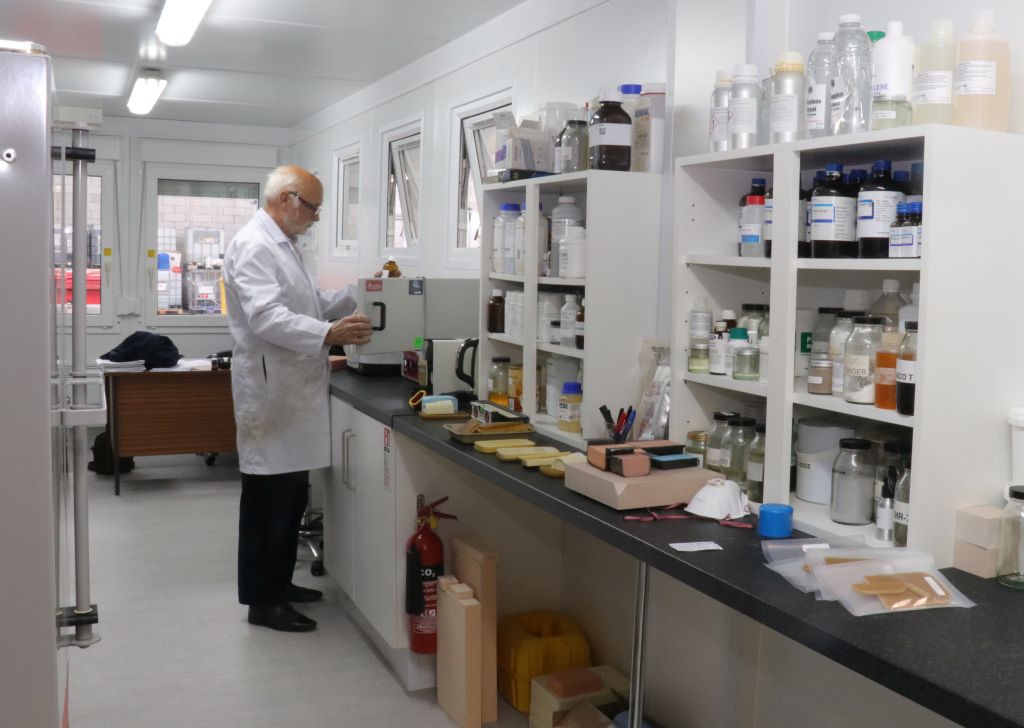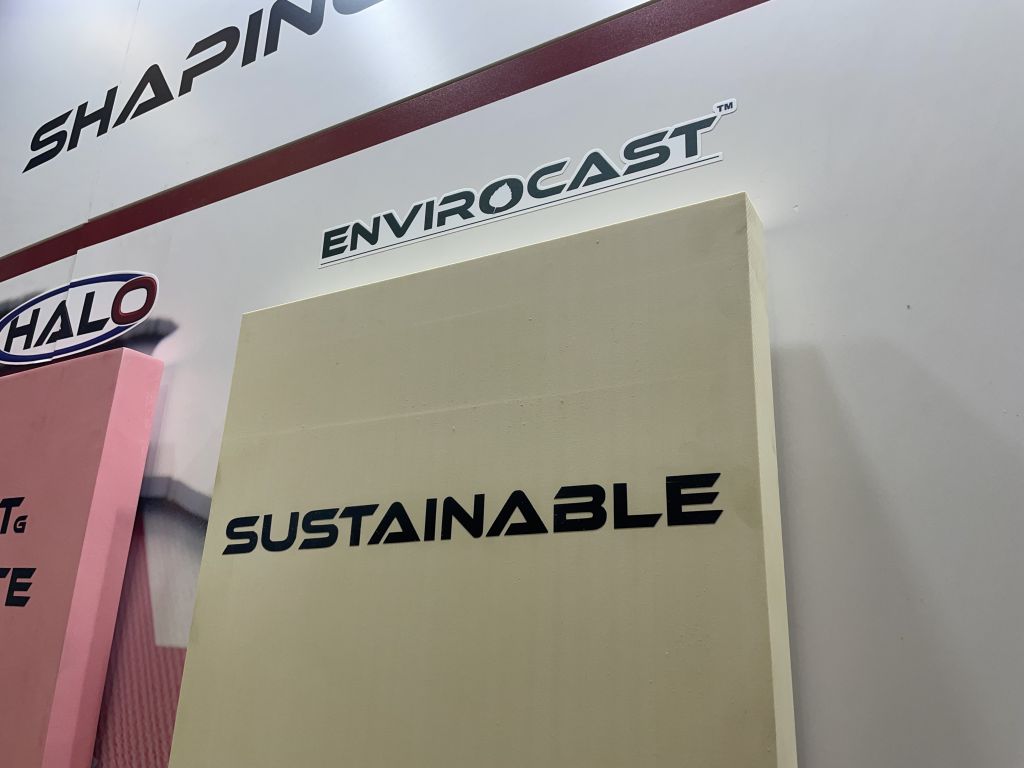Sustainability across the board

With the ‘green’ agenda in mind, utilising composite materials has become a priority. Using recycled materials manufactured from bio-carbon and recycled products, Ru-bix says its Envirocast range are the tooling boards of tomorrow.
The UK composites industry has experienced a range of macro-economic challenges over decades. From the high demand for one-off bespoke parts faced by businesses in the early 2010s, to the disruptions of raw material shortages, Brexit and Covid-19 over the past five years. By using the nationwide lockdowns over the last two years to their advantage, leading industry players, such as Ru-bix, have been able to solidify their foundations, focusing on continuous supply to their customers, and driving their composite R&D programmes to new heights.
With sustainability becoming an ever-growing issue faced by businesses across the globe, it is vital to act now. One way in which the industry can do so is by moving away from raw materials produced by fossil fuels and increase the use of sustainable alternatives to reduce CO2 emissions and strive towards the net zero goal.
Polyurethane (PU) already offers impressive and versatile properties. Its inherent resilience and ability to be formulated to produce rigid and flexible cast and foamed materials, in addition to a variety of adhesive products, makes it the obvious choice for many unique composites manufacturing solutions. It’s known to be an excellent insulator and plays a pivotal role in the fight to reduce energy usage across the globe.

To reduce carbon emissions the advanced engineering sector must shift towards the use of renewable raw materials. Using a renewable source, whilst ensuring that the performance of the tooling board is not compromised, is the goal. And with extensive R&D, the right expertise and a lot of time, there is no reason why it cannot be achieved sooner rather than later.
However, raw materials produced by fossil fuels should not be wasted; another strategy sharing the same sustainability focus is recycling polymers. As polyurethanes are petrochemical-based polymers, they can be chemically or mechanically recycled. With petrochemical manufacturers breaking new ground in transforming plastic waste into secondary raw materials. An increasing number of manufacturers are choosing suppliers based on their dedication to a sustainable future, and this is even more common within the composites industry. Even with the benefits of longer service life and lower energy consumption, polyurethane and other polymers must be disposed of at some point in the future, so environmental goals must be met now to ensure a sustainable future.
In a world that is leaning towards a ‘Green Industrial Revolution’, utilising composite materials must be a priority for both scientists and environmentalists. By doing so across the globe, effective decarbonisation will come to fruition and different technologies will need to be optimised, including the use of bio-carbon based products.
Bio-carbon based resins aren’t anything new to Ru-bix Tooling Board. In 1979, the parent company, Advanced Thermosets, developed the first commercially successful insulation resin with almost 90% renewable bio-carbon content. This product was initially developed to insulate an 11km ammonia pipeline in Tuticorin, India, but soon found applications in other industries.
Generally, polyurethane and epoxy tooling boards are made from 100% of carbon derived from a non-sustainable petrochemical source. However, by integrating an aliphatic vegetable oil, which is 100% bio-carbon, with a low energy conversion process, resins having high levels of bio-carbon can be produced.
Put the environment first
Previously synonymous with being difficult to recycle and therefore wasteful, the tooling board market must adapt to the increasing demand for sustainable materials. With polyurethane accounting for 66% of the global market, it is important that Ru-bix aim to develop new, increasingly sustainable materials for tooling boards so it can function as a key ingredient for the composites industry for many years to come.

Over recent years Ru-bix have been heavily investing in R&D to produce the PU boards of the future. Tooling boards that are derived from recycled materials are manufactured from bio-carbon and recycled products rather than petrochemical raw materials. Importantly, nature provides us with bio-carbon compounds which allow us to provide the composites industry with products containing aliphatic, heterocyclic and aromatic species, all derived from a natural sustainable source. Consequently, new grades of boards are being developed with ever-improving properties and enhanced environmental credentials.
The newest result from Ru-bix’s in-house R&D is the Envirocast range of tooling boards. They are based on a specialist Ru-bix own resin, Envirocast R500, which features an independently certified biocarbon content of 89%. R500 is derived from renewable vegetable matter using a low-energy process to convert the plant material into a useable resin which has been specifically formulated for use in the composites industry. The boards contain a mix of R500, and recycled plastic and swarf.
The future of composites
Composite materials have been a favoured choice within the advanced engineering sector for many years due to their weight reduction attributes, with improved mechanical and thermal performance. However, for composites to retain this position they must also evolve along with the increased global focus on the use of environmentally friendly materials.
Used plastics are filling up land-fill sites across the globe. Tooling boards and other thermoset products can now be optimised by using chemicals that are derived directly from sustainable sources and plastic waste to provide continuous improvement in achieving net-zero manufacturing processes.
Just because a material must be sustainable does not mean that it needs to compromise on any mechanical properties. Sustainable bio-based tooling boards maintain a fine surface structure, good dimensional stability, and a low coefficient of thermal expansion.
The Envirocast’s 650kg/m3 standard density tooling shows a compressive strength of 22MPa, a flexural strength of 28MPa and a CTE of 55m/m/°C. Importantly, Ru-bix intends to release a high Tg version later this year, providing the industry with a board that can be used with epoxy prepregs. This demonstrates that the use of sustainable and recycled chemicals does not prevent the composites industry from achieving high specification products.
Changing OEM initiatives
By moving away from fossil fuels, it encourages the shift towards sustainably sourced chemicals. New chemistries will contribute to more sustainable, recycled materials in aid of the global initiatives to reduce the use of fossil fuels.
UK-based manufacturers have seen a recent influx of orders coming from OEMs, not only due to the increased interest in sustainability but also following recent macro-economic factors such as Brexit and the Covid-19 pandemic. Such macro-economic events have highlighted to OEMs the importance of having a guaranteed high-quality supply chain within the UK.
Ru-bix has developed its new sustainable tooling board range to provide UK engineers across cutting-edge industries with the best possible products to face the challenging tasks of tackling net-zero ambitions. Its cost-effective and innovative polymer chemistry has led the company to create leading-edge products for a host of applications to meet the exacting demands of the advanced engineering sector.









